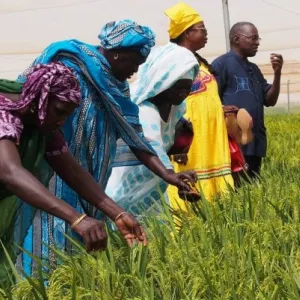Quality and quantity of data from varietal selections encourage the adoption of improved rice varieties in sub-Saharan Africa
While most breeding efforts are focused on producing improved rice varieties, farmers in sub-Saharan Africa continue to use old varieties that are susceptible to various environmental stresses. Seeking to understand the disconnect, researchers combined qualitative and quantitative data on the preferred rice traits of farmers, researchers, custom millers, traders, administrators, and seed producers from Burundi. Through this innovative approach, the study uncovered

Quality and quantity of data from varietal selections encourage the adoption of improved rice varieties in sub-Saharan Africa
While most breeding efforts are focused on producing improved rice varieties, farmers in sub-Saharan Africa continue to use old varieties that are susceptible to various environmental stresses. Seeking to understand the disconnect, researchers combined qualitative and quantitative data on the preferred rice traits of farmers, researchers, custom millers, traders, administrators, and seed producers from Burundi. Through this innovative approach, the study uncovered multiple traits in rice that go beyond production-related traits desired by stakeholders and sometimes contradict the trait preferences assumed by plant breeders.
Using qualitative and quantitative data elicits deeper insights into rice trait preferences and broader issues affecting rice farmers that may not be aligned with the goals of crop breeding programs and results in the low adoption rate of improved varieties. This is one of the key findings of a two-year study involving several rice-value chain stakeholder groups in Burundi.
“Adoption rates can be increased if we develop varieties that meet and address men’s and women’s preferences, needs, and priorities, as well as opportunities and constraints,” said Mary Ng’endo Kanui, a social scientist at the International Rice Research Institute.
Rice is one of the most important crops in sub-Saharan Africa (SSA), next to maize and cassava, but only a few countries in SSA have reached self-sufficiency in terms of rice production. The low adoption rate of new rice varieties by farmers is one of the challenges to higher production and productivity in rice-producing countries and zero hunger and food security in the region.

